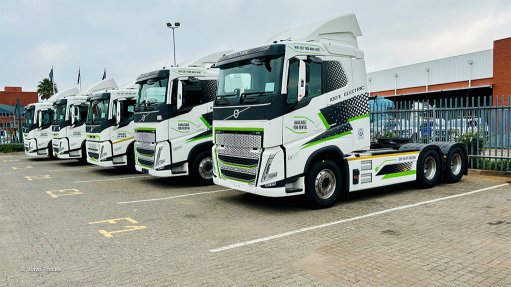The power of education to accelerate climate progress
This article has been supplied as a media statement and is not written by Creamer Media. It may be available only for a limited time on this website.
The effects of climate change are widespread, rapid, and intensifying. In a new report, Boston Consulting Group examines how education can improve climate literacy, impact behavioural change, and be an integral element of other systemic initiatives to combat climate change.
Over 130 countries are striving to achieve net-zero carbon emissions by 2050 and aside from technological innovation, learning how to live on the planet as the climate changes rapidly will be critical to attaining and sustaining net zero. Education is a powerful means of spurring collective action and cultivating green skills and will be a major enabler of a just transition.
Throughout history, people around the world have recognised the importance of knowledge and education. Therefore, it is crucial to realise how education can also play a significant role in the fight against climate change, and that the education sector needs to improve its efforts to promote climate justice and help ensure a just transition to a sustainable economy. While education is often overlooked as a factor and a solution in climate discussions, Boston Consulting Group (BCG) highlights three key areas where education can contribute: behaviour change and collective action, cultivating skills for a just transition, and building the capacity to adapt.
To accelerate climate literacy, educators, educational institutions, and governments need to work together to develop curriculums that are action-oriented (rather than merely disseminating information) and train teachers appropriately. By increasing students’ awareness and understanding of climate change and climate action, schools can empower young people to become agents of change in their local communities, instilling new norms and inspiring a sense of the possible. This could effectively lead to behavioural changes at individual and household levels in choosing modes of travel, what to eat and drink, and how to heat and cool their homes, which can contribute significantly to keeping global warming to 1.5° C above pre-industrial levels.
A just transition to a sustainable economy requires education, government, and industry leaders to adopt a broad view of green skills and climate literacy. This view includes both technical and leadership skills that will be required in the future. In order to understand the skills required for a greener economy, leaders need to use a data-driven approach that ensures that the education programmes and training institutions are aligned accordingly. According to BCG, these sectors need to work together to ensure that all, especially those from historically marginalised groups, have the necessary skills and pathways to a prosperous future.
For example, BCG has worked closely with the National Business Initiative and Business Unity South Africa to map sector-by-sector requirements in the power, mining, petrochemical, and other industries for a just transition, the impacts on jobs, and the reskilling programmes required.
Reskilling plays an important role not only in developing the skills needed for green jobs, such as in green energy, but also in making sure that displaced workers acquire skills that will be useful elsewhere in a greener economy. This transition is also an opportunity to ensure that those who were previously excluded from jobs because of their gender or disability, for example, are included in the development of a more diverse, inclusive, and equitable workforce.
The relationship between education and improved adaptability, resilience, and economic opportunity needs to be demonstrated in more research to build a stronger case for educational investment. If education's potential is better understood and supported, countries’ national adaptation plans could be strengthened, and intersectional funding could become more flexible.
Women are often the ones closest to influencing behavioural changes as a result of climate change, such as how they use water, farm, or cook and heat. In fact, one study projects a 60% lower death toll from extreme weather events between 2040 and 2050 if 70% of women in Sub-Saharan Africa receive a secondary-school education.
It is essential to increase investment in education, particularly for women and girls, in order to enhance long-term adaptive capacity. By investing in women and girls' education, social equity and climate action can be increased.
Comments
Press Office
Announcements
What's On
Subscribe to improve your user experience...
Option 1 (equivalent of R125 a month):
Receive a weekly copy of Creamer Media's Engineering News & Mining Weekly magazine
(print copy for those in South Africa and e-magazine for those outside of South Africa)
Receive daily email newsletters
Access to full search results
Access archive of magazine back copies
Access to Projects in Progress
Access to ONE Research Report of your choice in PDF format
Option 2 (equivalent of R375 a month):
All benefits from Option 1
PLUS
Access to Creamer Media's Research Channel Africa for ALL Research Reports, in PDF format, on various industrial and mining sectors
including Electricity; Water; Energy Transition; Hydrogen; Roads, Rail and Ports; Coal; Gold; Platinum; Battery Metals; etc.
Already a subscriber?
Forgotten your password?
Receive weekly copy of Creamer Media's Engineering News & Mining Weekly magazine (print copy for those in South Africa and e-magazine for those outside of South Africa)
➕
Recieve daily email newsletters
➕
Access to full search results
➕
Access archive of magazine back copies
➕
Access to Projects in Progress
➕
Access to ONE Research Report of your choice in PDF format
RESEARCH CHANNEL AFRICA
R4500 (equivalent of R375 a month)
SUBSCRIBEAll benefits from Option 1
➕
Access to Creamer Media's Research Channel Africa for ALL Research Reports on various industrial and mining sectors, in PDF format, including on:
Electricity
➕
Water
➕
Energy Transition
➕
Hydrogen
➕
Roads, Rail and Ports
➕
Coal
➕
Gold
➕
Platinum
➕
Battery Metals
➕
etc.
Receive all benefits from Option 1 or Option 2 delivered to numerous people at your company
➕
Multiple User names and Passwords for simultaneous log-ins
➕
Intranet integration access to all in your organisation

















